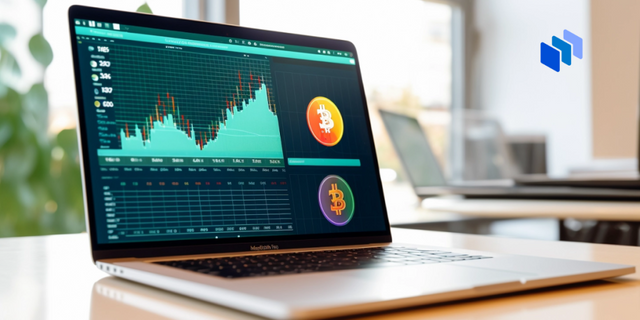
Artificial intelligence (AI) is changing the way we trade cryptocurrencies by providing real-time market monitoring, historical data analysis, and trading automation. However, there are challenges, including technical complexity, over-optimization, lack of human judgment, and regulatory concerns. It is important to approach AI trading systems with caution, using them as tools alongside other strategies and risk management measures to maximize their benefits and mitigate potential risks.

With the growth of cryptocurrencies in recent years, they have become an attractive option for traders and investors looking to diversify their portfolios. However, the volatile and complex nature of the market can make it challenging to navigate the market successfully.
For this reason, artificial intelligence (AI) has emerged as a powerful tool changing how crypto trading is conducted.
What Is Artificial Intelligence?
AI refers to the development of computer systems that can perform tasks that would typically require humans to carry out. AI algorithms can analyze vast amounts of data, identify patterns, and make decisions or predictions based on the insights they derive.
In crypto trading, AI systems can analyze market trends, identify potential trading opportunities, and execute trades quickly and accurately.
How Can AI Assist In Crypto Trading?
There are several ways that AI can bring value to crypto trading and potentially contribute to more profitable outcomes.
Real-Time Market Monitoring
One of the key advantages of using AI in crypto trading is the ability to process and analyze massive volumes of data in real time, as the market operates 24/7, and prices can make significant moves within minutes.
unpredictable, and there are risks associated with algorithmic trading. These include:
Technical complexity. Implementing AI systems requires technical expertise and infrastructure. Developing and maintaining algorithms, data processing capabilities, and robust trading systems can be complex and costly, limiting access for individuals and small trading firms.
Over-optimization. AI algorithms can be excessively tailored to fit historical data but then fail to perform well on new or unseen data. This can generate false signals and result in poor trading performance. AI algorithms must be designed and tested carefully to ensure they are robust and can handle different market conditions effectively.
Volatility and uncertainty. The unpredictable nature of crypto markets poses challenges for AI algorithms. Algorithms can struggle to adapt to sudden price swings or unexpected events, resulting in significant losses. If systems are not properly calibrated or rely on historical data alone, they can make inaccurate predictions and flawed trading decisions.
Lack of human judgment. AI excels at data analysis and pattern recognition and lacks human judgment and intuition. While this can be an advantage in limiting irrational decision-making, there are nuances that algorithms may be unable to capture. Human traders bring experience, expertise, and the ability to assess sentiment and news events, which can affect trading decisions. Relying solely on AI systems can lead to flawed decision-making and missed opportunities.